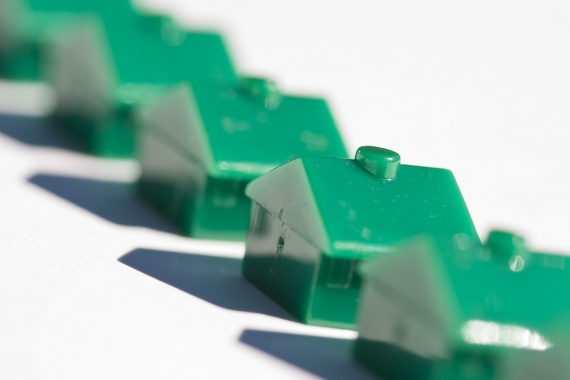Housing and the Economic Responsibility
Within the framework of the European Responsible Housing Initiative (ERHIN)
Brussels, 29 September 2014 | Economy
In the fourth part of our blog series on the notion of "responsible housing in Europe", we focus on the role of economic responsibility.
Two representatives from a total of five projects that made it as finalists in this category of the first edition of the European Responsible Housing Awards 2014 to share their views around the importance of economic responsibility. Is there a secret recipe?
"For a responsible partnership with suppliers"
Beyond contractual relations, SDH favours partnerships with its stakeholders, based on trust, reliability and a “win-win” approach. It helps find ways to address some issues that we would not be able to solve alone.
Over the last years, we have therefore developed various tools to strengthen the relationship with our suppliers, help them meet our expectations and raise their awareness on CSR issues: a framework “good practice” agreement with the local construction federation, a two-way commitment charter signed with suppliers as well as a dedicated Extranet platform to facilitate interaction.
These tools help to ensure that the services delivered by our suppliers and contractors are consistent with our quality and CSR commitments. They also address their constraints and expectations. Lastly, they contribute to spread a “CSR culture” across our supply chain.
Each year, our activity generates tens of millions of euros of income for our suppliers and contractors; we make a significant contribution to the regional economy. Yet, our contribution should not just be about money, but also about improving business practices to achieve greater collective benefits and sustainability.
DAB (Dansk Almennyttigt Boligselskab), Denmark
"An Important Challenge"
Economic responsibility and sustainability is one of the six focus areas of our CSR-strategy. It encompasses tasks as varied as the purchasing of hardware products for the housing associations or merchandising for DAB, to entering into agreements with contractors on major building projects.
Although very different in scope, they all present the same problem: It is difficult for us to ascertain, whether the work carried out in the production process meets our CSR-requirements. This is particularly true for products purchased overseas and for work carried out on our construction sites by contractors and sub contractors.
Consequently, DAB has designed a purchasing policy that incorporates measures to assess whether or not our suppliers comply with our requirements. We have also tightened our requirements regarding working conditions for our contractors by incorporating an additional clause to our contracts.
In the future, we expect to cooperate with suppliers and contractors, who also have social responsibility as a basic principle of their conducting business.
Leave comments